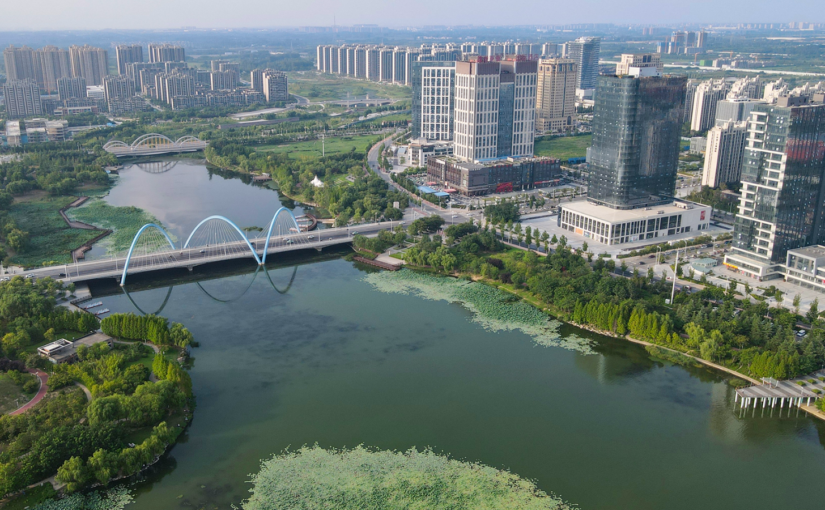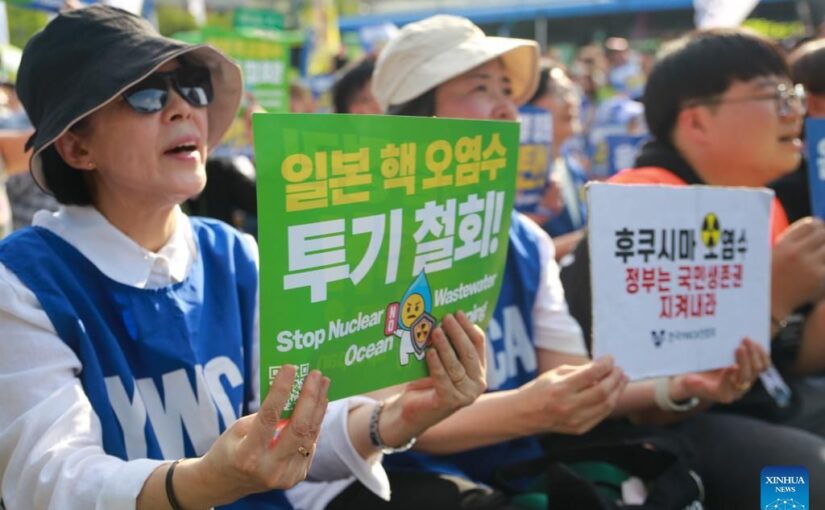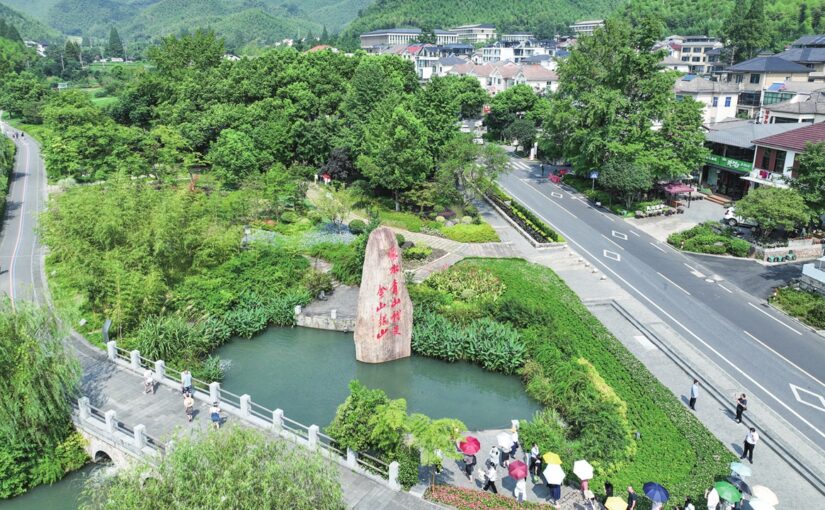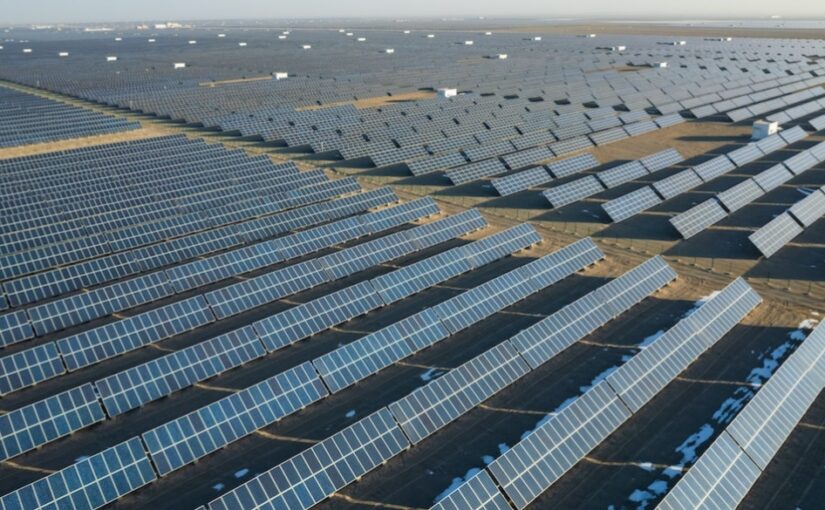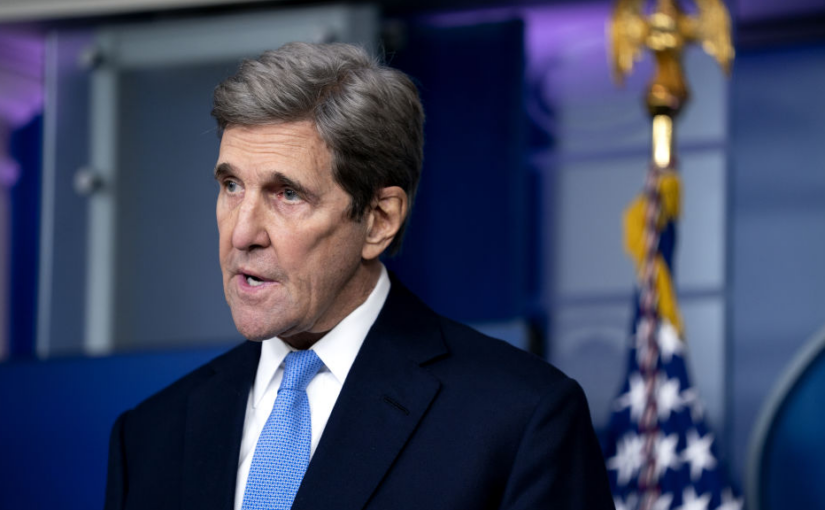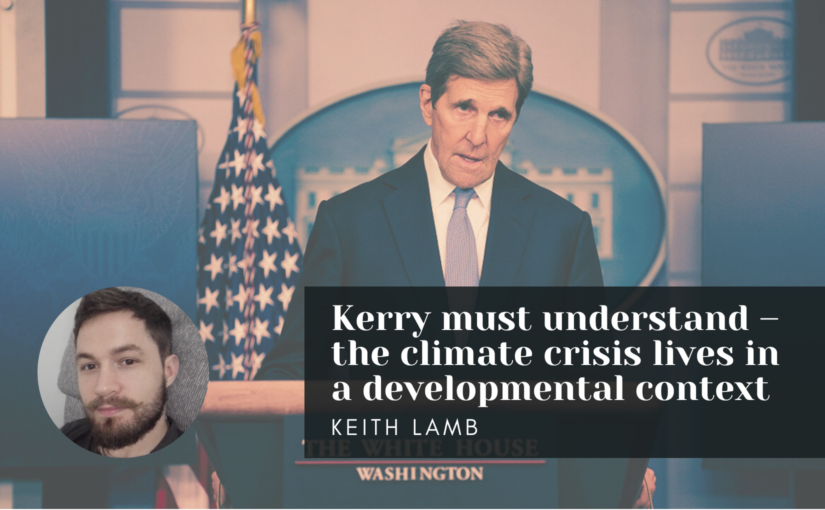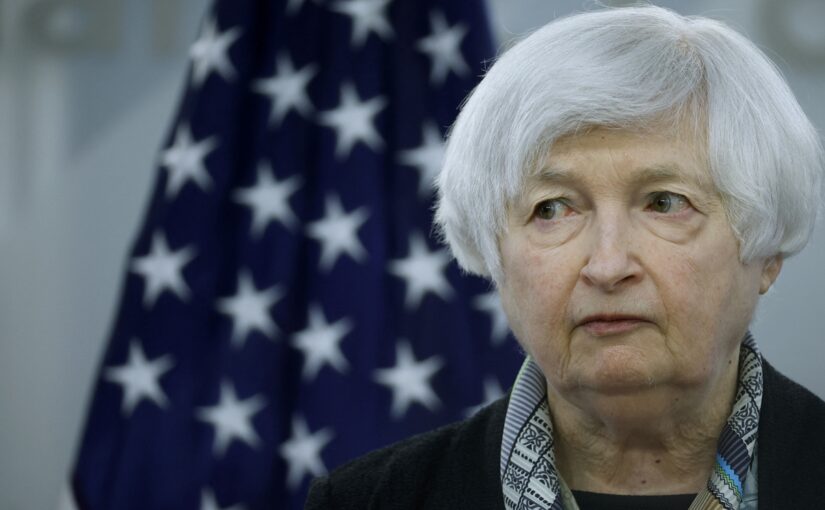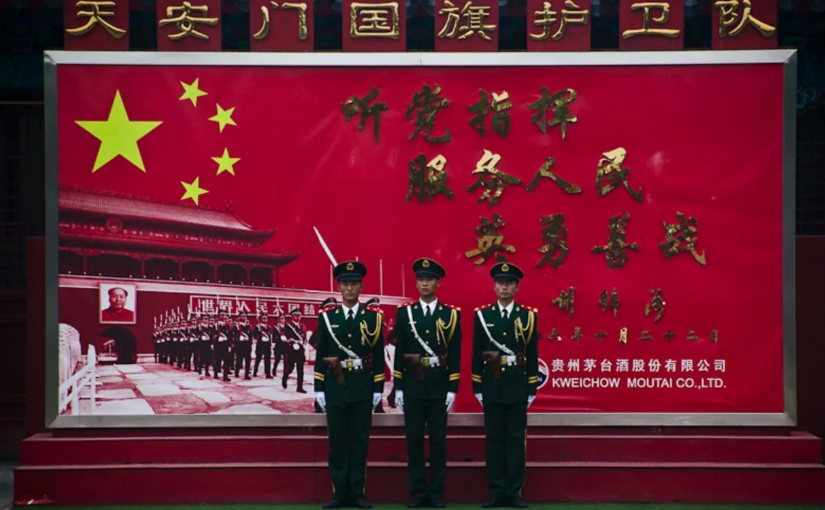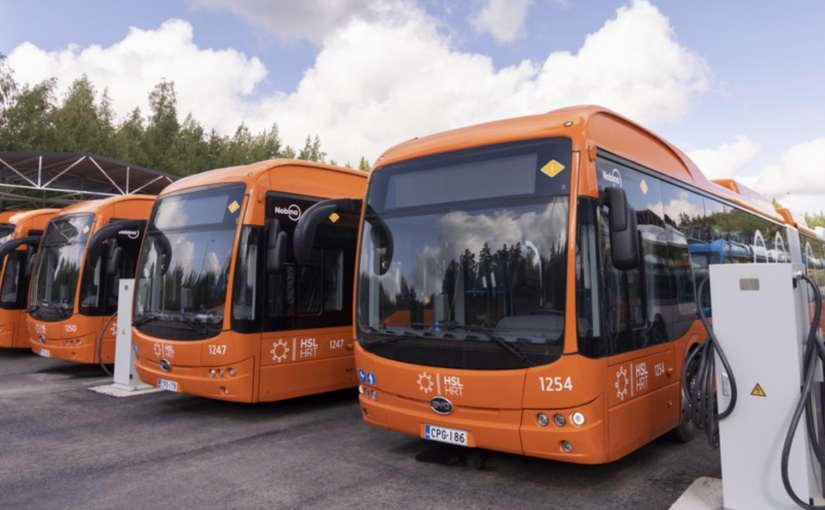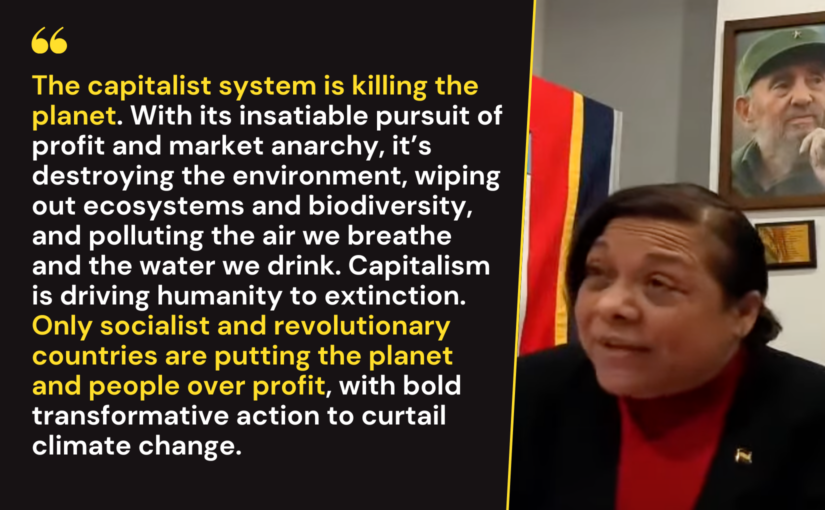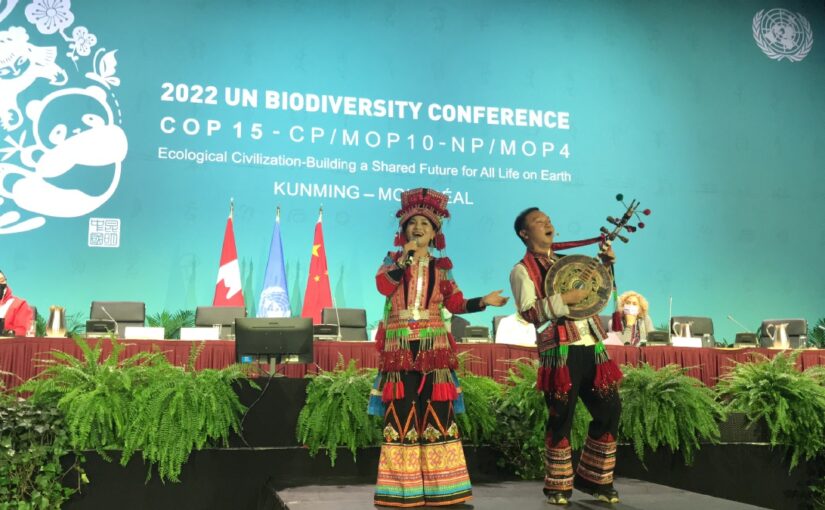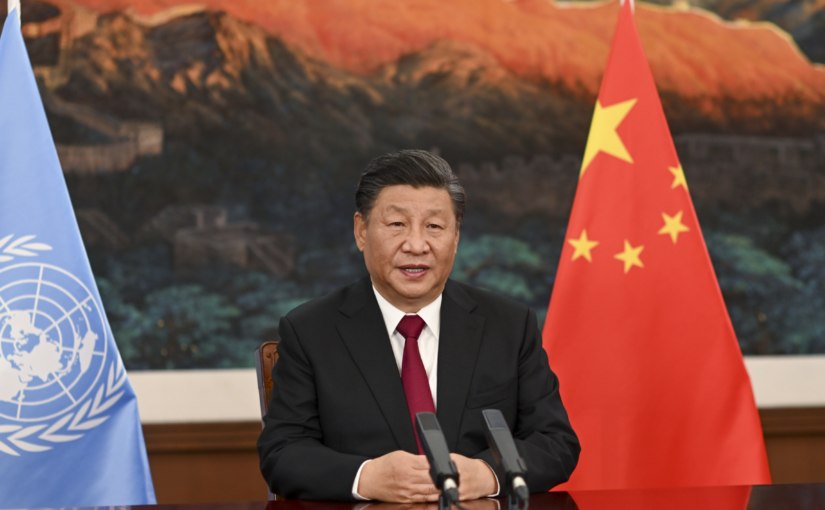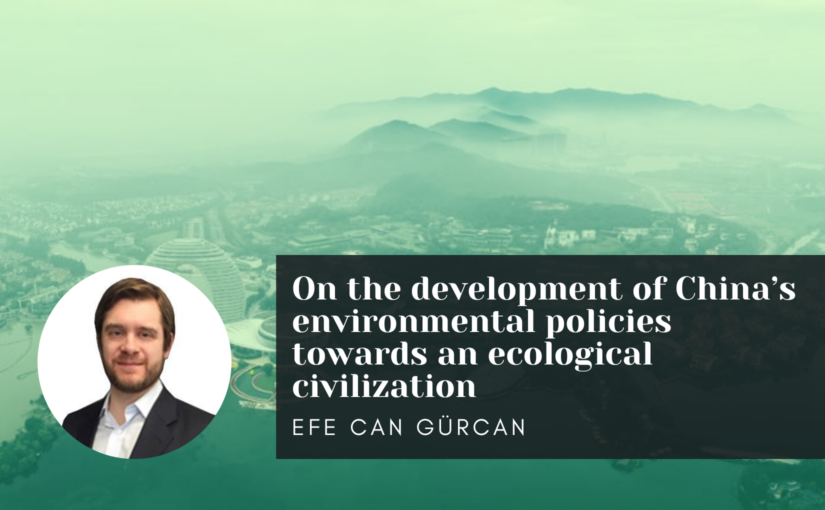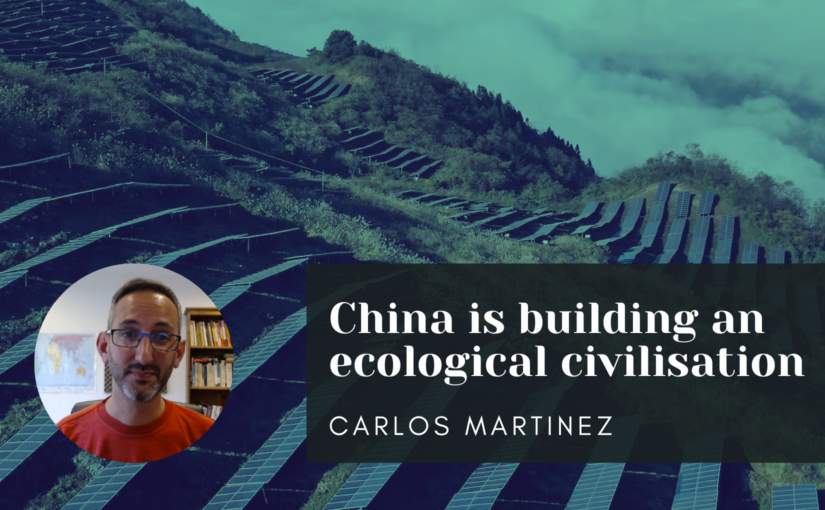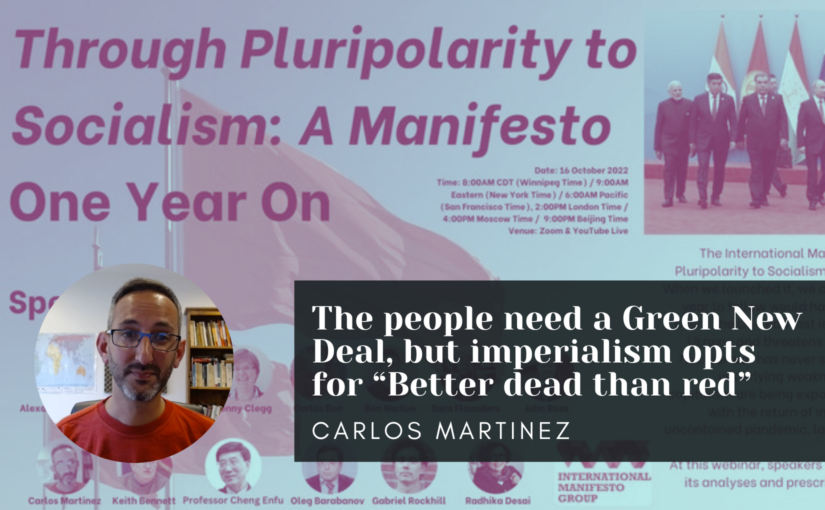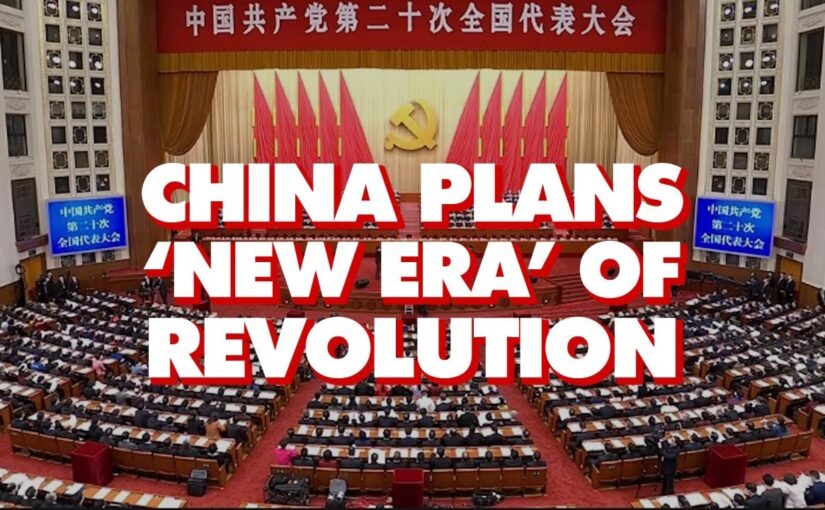In this fascinating article, first published in Liberation School, environmentalist and author Tina Landis explains the concept of sponge cities: what they are, why they are needed, and China’s leading role in developing them.
Tina observes that “the majority of the world’s cities today were built for profit and speculation in mind, with little to no consideration given to negative impacts on either ecology or humanity.”
“Vast hardscapes—sidewalks, roads, parking lots, buildings—and gray infrastructure that channels water away as it falls, places these urban centers at odds with biodiversity and the natural cycling of water through the landscape. Green spaces that are created within urban environments are often highly managed areas separate from the rest of the city, filled with non-native ornamental plants and thirsty grasses that require intensive irrigation, synthetic fertilizers, and pesticides, while providing little to no benefit to native species of birds, insects, and others.”
In an era where humanity faces a rising threat of climate breakdown, developing creative solutions to these problems is literally a matter of life and death. China in particular “is taking comprehensive action to address how urban areas impact the environment and how climate impacts are demanding more resilience in urban planning”, aiming to retrofit and create 30 sponge cities by 2030.
These sponge cities are designed to be climate-resilient population centers. “Sponge cities utilize green infrastructure so that surfaces act as a sponge absorbing water. They integrate space for water to collect such as wetlands and bioswales, create vegetative cover and trees throughout including green roofs and vegetation integrated into building structures, and porous pavement and roads so water can infiltrate soil and catchments underneath to be available during dry times.”
Tina notes that renowned Chinese ecologist and landscape architect Kongjian Yu has been the driving force behind the sponge city movement at a global level. His work has won broad support among China’s political leadership.
Sadly, for the moment, China is the only country developing sponge cities on such a vast scale, as a result of its political system. “Only under a socialist planned economy, like that of China, can real solutions to climate change be implemented on a mass scale.”
Introduction
According to the United Nations Population Fund’s 2009 report, 2008 was the first time in history that over 50 percent of the world’s population resided in cities instead of rural areas. Because of the different ways countries define cities, others date the qualitative shift to as recently as 2021 [1]. Regardless, across the spectrum it’s undisputed we now live in an “urban age” and, as such, transforming the relationship between cities and the natural world is essential for climate change adaptation and mitigation. The international capitalist institutions like the World Bank that are increasingly taking up the issue of cities and climate change can’t explain the various factors behind urbanization nor can they pose real solutions to its impact on or relationship to climate catastrophes. Cities consume 78 percent of the world’s energy resources and produce 60 percent of global greenhouse gas emissions, according to a 2022 UN Habitat report [2]. Under the capitalist model, urban planning lacks a holistic approach, leaving human well being and ecological needs as an afterthought, which will continue to have a degenerative effect on the environment and global climate.
Although Marx and Engels lived during a time in which capitalist urbanization was a nascent phenomenon concentrated mostly in some European cities, like Manchester, the English city about which Friedrich Engels wrote his first and classic book, The Condition of the Working Class in England. Engels demonstrates how the “great town” of Manchester, the first major manufacturing center in England, was great only for capitalist profits. The concentration of capital required for the invention and adoption of machinery outproduced independent handicraft and agricultural production, forcing both into the industrial proletariat of the city. There, they had to work for the capitalists, whose wages were so low they could, if they were lucky, live in overcrowded houses and neighborhoods just outside the city limits. Because the city was produced chaotically for capitalist profits, no attention was given to accompanying environmental impacts [3]. As the masses were driven from their land into the urban factories, the ancestral ties to the land and ecological knowledge of how to live sustainably on that land was lost.
Continue reading Capitalist urbanization, climate change, and the need for sponge cities